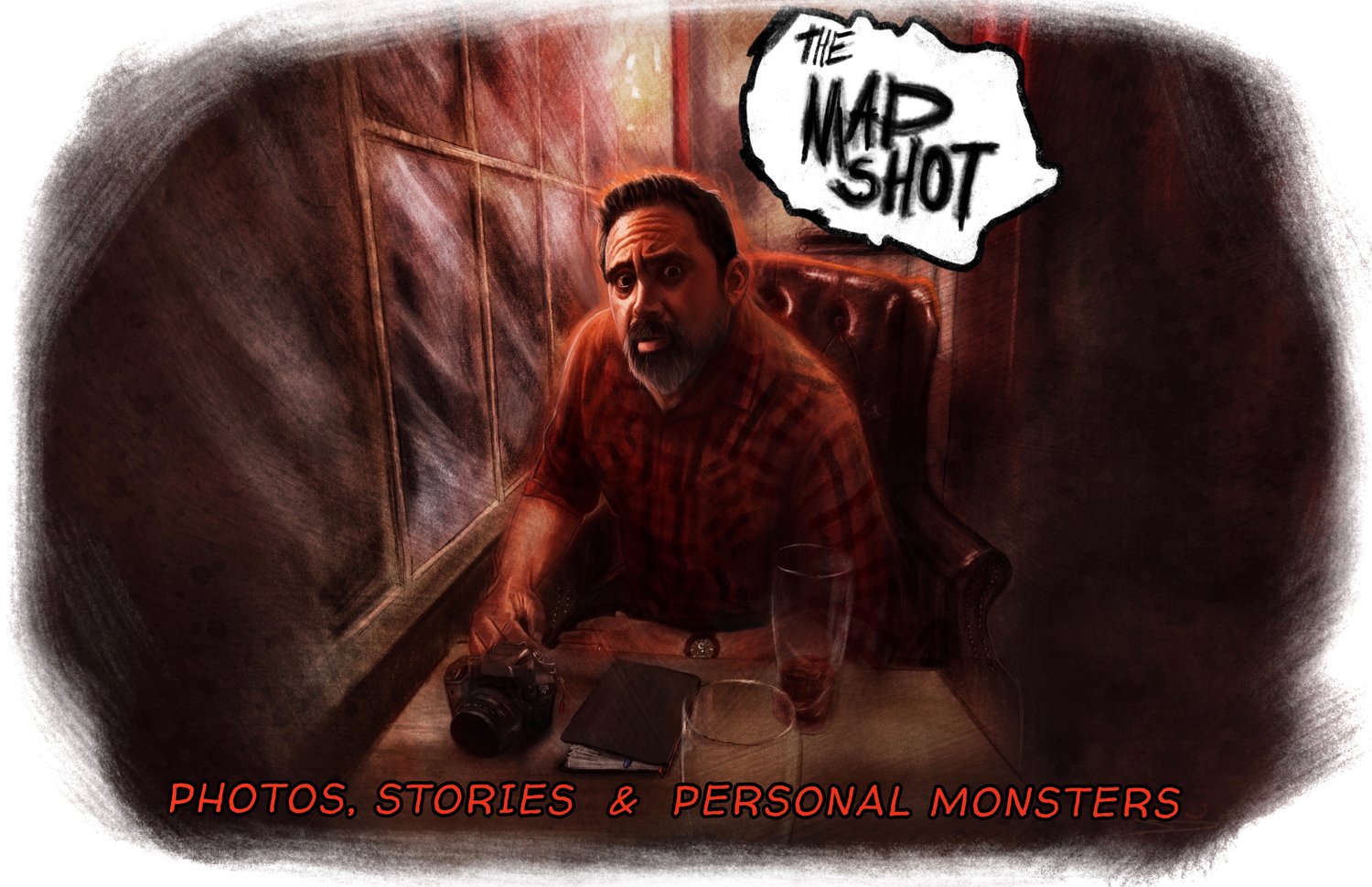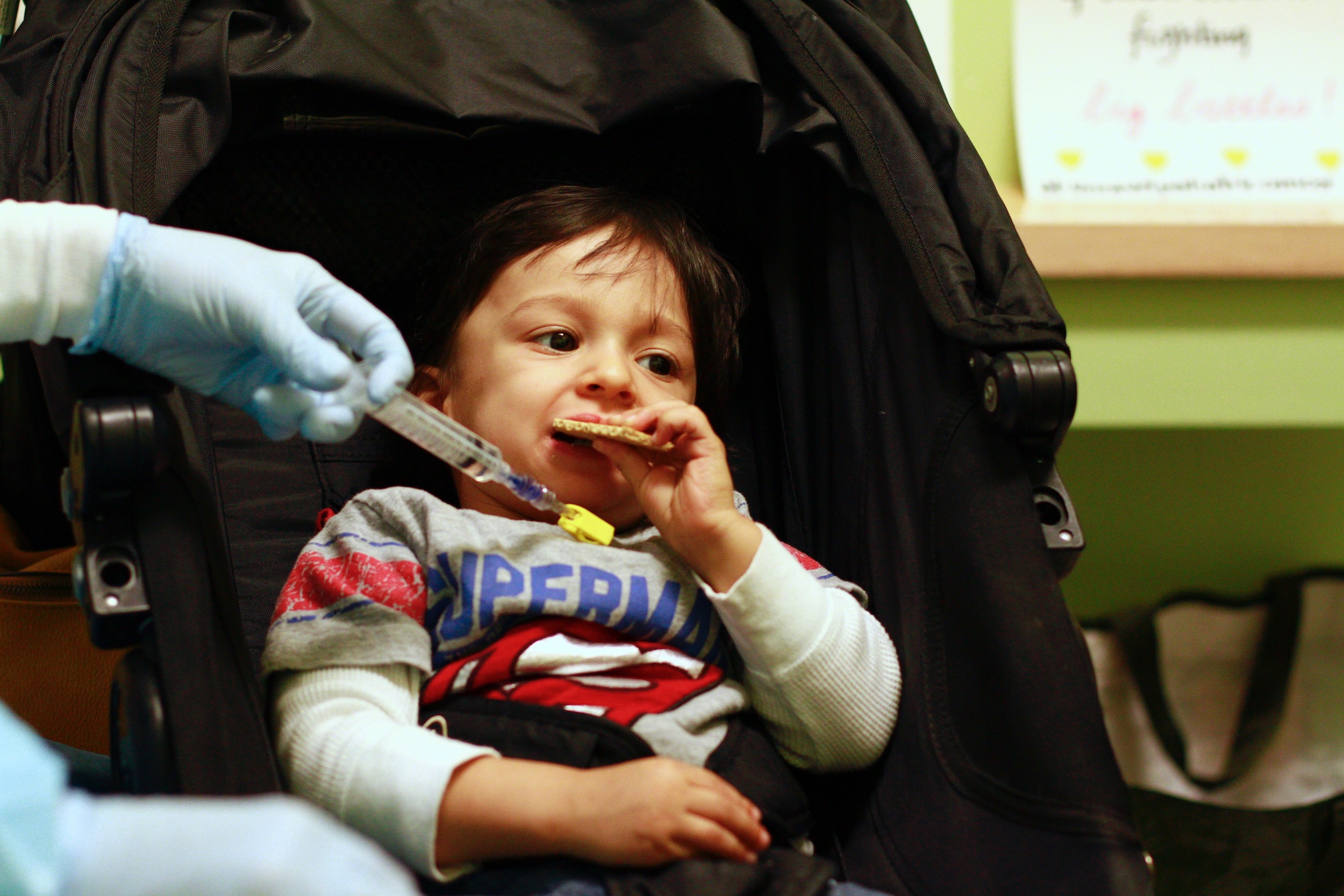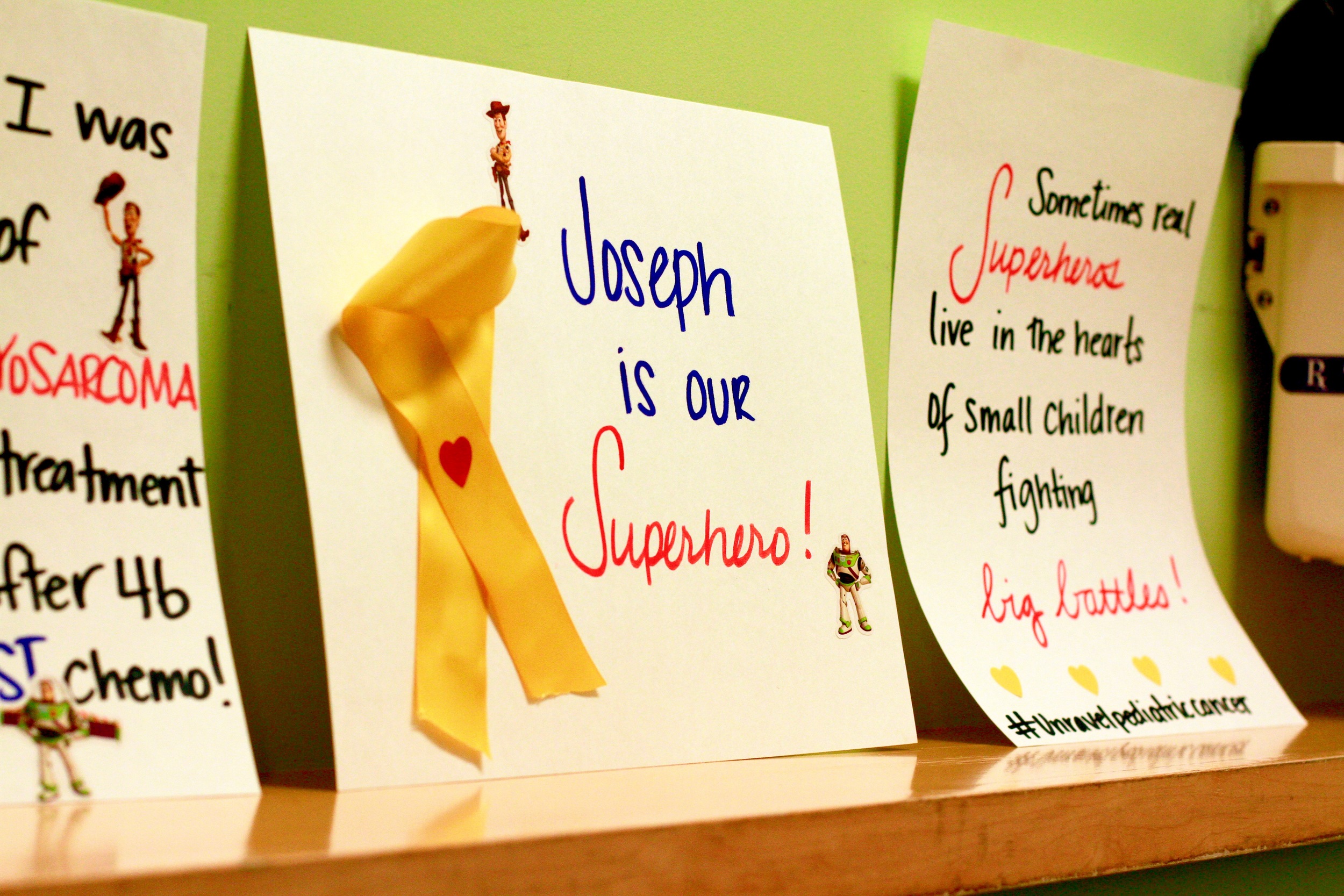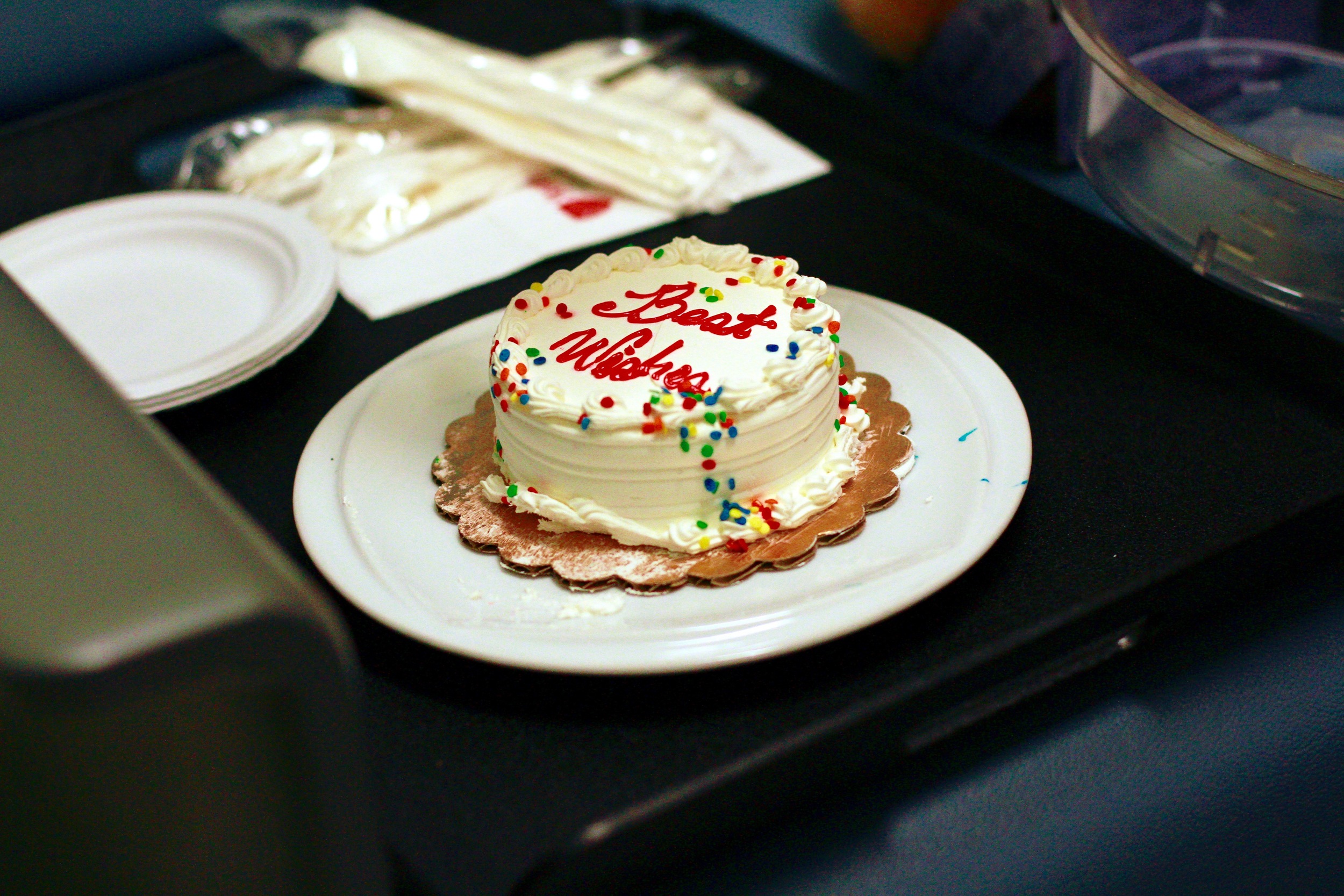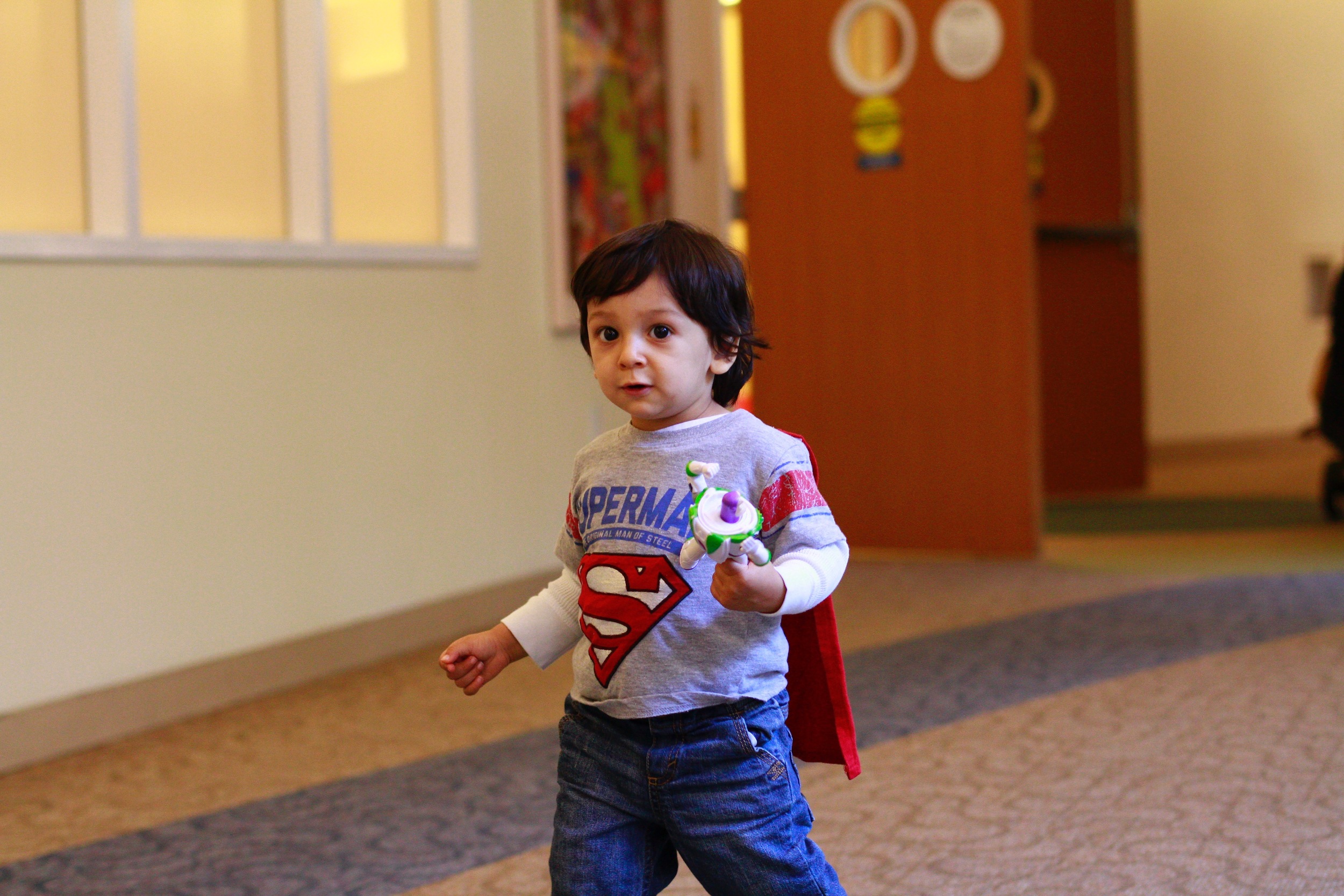Everything Matters
There is a sound. A recurrent hum pummels my brain into submission. Awareness settles. My eyes strain from the gesture, not yet ready to reveal themselves to the day. Rays of light squeeze through the blinds like a flashlight cupped in the palm of a hand. I rise. I am standing half naked in the middle of my tiny studio apartment in Hollywood, California, practically sleeping upright as I plan my trek to the bathroom. The date is September 11th, 2001 and as far I can tell, feels like any other day of the week. I piss my innards out and wash my hands and face at the sink. I prepare my breakfast like only a bachelor can, with ideas at the forefront minus any preparation of actual food.
Following a quick shower, I brew some coffee, the reason motion is even possible this morning. I can't remember if I went out drinking the night before, but last I checked you needed friends to do that. Not always, but it helps. I had lived in Los Angeles for five months and at that stage knew 2 people, both of whom I hardly saw. I leave my apartment and descend the 4 floors to the garage parking where my 1993 Ford Escort assembles its 2 cylinders. I start the engine, a wheezing sound that counters any sort of vehicular rush, and drive further away from any likelihood of ever getting laid in this city.
I stick to my normal itinerary. I worked at Shurgard Storage (acquired by Public Storage in 2006) managing one of their sites in Culver City, 20 miles from my apartment. As a fairly new resident of LA, my knowledge of some of the more convenient routes was still in its infancy. The arteries of this city are almost always clogged, regardless of the time of day, inciting a conscious decision to avoid the freeways at any cost. I approached light after light, shocked by the rare occasion of what felt like, by LA standards anyway, a car-less commute. I didn't know why, but this particular morning seemed different.
As I arrived, I spotted a pair of construction workers frantically moving about and gathering their belongings. A section of the building had been under construction for the past few weeks so this was normal. I parked. As I exited the car, one of the men walked in my direction and with his hands raised full staff, shouted "America is under attack! The World Trade Center is in ruins!" I allowed the statement to settle. Before even pretending to grasp the concept, a second wave came. "Go home, man! We're too close to LAX. That may be a target!" With that, the men hopped in their trucks and took off, leaving the building and me in complete fucking darkness. I entered the main office in a now awkward attempt to begin my opening duties, his words hovering like a halo above my head.
What sort of attack could we be under? And by whom? Or what? Had Independence Day actually happened? Had aliens, mirroring a scene from some shitty Hollywood blockbuster, finally made their presence known? I needed answers. I called my friend (now wife) Josephine. After a few rings, she answered, the exhaustion in her "hello" immediately countered by a bombardment of questions. With no television in the office and smartphones still in the crawling stage, I had only this phone call to rely on. I waited as she shuffled around the bed searching for her remote, a button-press away as it was aired on nearly every channel. A moment passed, and she gasped "Oh my God..."
"What?" I yelled. I was anxious, like a child eagerly awaiting the unveiling of that first present on Christmas Day. Only underneath was something I could have never anticipated, or would ever have wanted to. She began to cry. By the time her and I spoke, the day had already seen the collapse of both towers, the Pentagon struck and the crash of United Airlines Flight 93 in a field in Pennsylvania. It was unfathomable. And I still had yet to see a single image. She tried to describe it for me. The footage was everywhere and more than capable of guiding her illustration of the events but when tears become your primary source of ink, painting a picture for someone can be impossibly difficult.
She became more distressed when describing the "jumpers." The worst of the attack was now coming to light. I let her go, neither of us really knowing what else to say. The following phone call was to my friend Vince. (Replaying this in my head, I have no idea why my first instinct wasn't to call my parents). Judging by how he answered the phone, it was obvious he was still in the dark. But then again, we all were now. I waited for him to turn his TV on, and the expected reaction to come. "Holy shit" he cried out, almost as if he'd been up for hours, an acknowledgement of significance. My next call still wasn't to my parents. It was to my boss at the time to ask what next steps for us were. It turned out, as construction dude guessed, our days were ending, if only for work.
A Silent Commute
I was sealed to the radio in the car. I stayed on one station, which described the scene as "something out of a movie" and "the worst terrorist attack in United States history." He offered his own description of the poor souls who jumped from almost 100 stories up to escape the sweltering heat from the fires. Fires I still couldn't believe were from a Boeing 767 having been used as a missile to crash into a building. "What the fuck is happening?" I thought. As the reporter emphasized the horror of the events, I started to sob in my car. Thankfully, I was on my way home but I knew what I would be doing once I got there. As curious as I was, I still didn't know what I was going to see. And whatever it was, I knew I would be seeing it alone.
Massacre At A Hight School
Two years prior to the events of 9/11, I was siting in the living room of my apartment in San Diego. My girlfriend at the time had convinced me to move with her while she attended school and like a good boyfriend and feeling somewhat adventurous, I decided to make the trek from San Jose to Southern California. It was the first time either of us had abandoned our respective parental nests so it was a big deal for us to move to a completely different part of the state for the test. As I sat in front of the TV, I was awarded the first couple of images of what appeared to be a shooting at a high school in Colorado.
Scores of students and faculty huddled with authorities as the voice of a news anchor reported that two gunmen had opened fire inside. It was the first mass shooting that I can remember having witnessed unfold on live TV. I called my friend Jenn back home. We spent the next few hours on the phone together watching the footage. I remember the shock that came over me as I listened to eye witness accounts of the bloodbath that took place inside, and also during live coverage of students lying bleeding on the hot cement, I shared my excitement that the release of the first installment of the Star Wars prequels was fast approaching.
On a sunny April 20th, 1999, two Columbine seniors, Dylan Klebold and Eric Harris, took action against the torment they suffered from fellow classmates at the school. Armed with multiple firearms, knives and homemade pipe bombs, the two entered the school through the west entrance and for nearly 50 minutes, went on a murderous rampage, killing 12 students and one teacher. For months, this is what the media reported as the primary motivation behind the attack. Countless books since then have been written, documentaries produced and conspiracies theorized of the young men's true intentions. The bully theory was eventually refuted by a more confidently identified motive shared by journalist Dave Cullen in 2004.
We watched the madness unfurl. I lost focus on the reasons behind the attack, blinded by the simple fact that this was actually happening and to kids no less. It was terrifying to watch but as I sat in the confines of my apartment, I grew numb. I wasn't angry or confused. I didn't think about gun control or lofty politicians. When Michael Moore's 2002 documentary Bowling For Columbine was released, it invited other considerations into the mix - the media, the NRA, our country's fascination with gun violence, and war to name a few. It's not that I didn't take any of these things seriously. I just didn't immediately consider them when imagining why two high school kids would commit such a terrible act of brutality. Over the years to come, it would slowly become evident.
Home At Last
As I stormed my apartment door, the first thing I did was turn on the television. The image of a still standing North and South tower filled the screen, a marriage of smoke and fire swelling from within. I recalled the voice heard earlier describing the scene as something out of a movie and I understood completely. It didn't look real. The scope of the destruction was massive but these were not special effects. The sky behind the towers was a deep blue, not a bright green canvas that's often the cape of Hollywood trickery. This was happening. I turned to multiple channels, like a strobe light of the same event flickering before me, various stages of the attack playing over and over. I was at a standstill in the middle of my apartment.
The largest terrorist attack in our nation's history had not only occurred but was now playing like a broken record on the phonograph of 2001 media. The collapse of the buildings revealed another level of the chaos, followed by my finally seeing footage of the people left with no other option than to jump to their deaths. My hands swung like a gate over my mouth. This was the first 30 minutes of a 5 hour binge fest. I made more phone calls (one finally to my parents) and even went for a walk in a foolish attempt to clear my head. I sprung through the door and escaped onto a strangely quiet Hollywood Boulevard. There was no planned destination in mind, just a need to tear myself away from the news, a feeling that sadly mirrors many sentiments of today.
I passed by smoke shops, restaurants, and bars. You could almost feel the detachment among the patrons inside. Tourists strolled along the star lined sidewalk, pretending to enjoy themselves. I walked alone, a piece cut straight from the cloth of human connection. If I had already felt an unease engaging strangers in conversation, this only solidified its merit. I was busy anyway. More images of mass destruction awaited me. I would be returning to my apartment soon enough.
Aftermath And Everything Else
That November, I had plans to visit family in San Jose for Thanksgiving. It was the first time I would be traveling by plane following the attacks so I had no idea what was ahead of me. I exited the taxi, landing perfectly at the end of the security line, which had spilled out onto the sidewalk as holiday travelers inched their way inside. Normally, this would be cause for complaint as to how much of a pain in the ass this was. But what I gathered from the crowd and almost universally so, was that safety, over anything else, outweighed a few extra minutes, or in this case hours, in line. I felt a strange sense of community with these people as all of us, regardless of the situation, were in the same boat, waiting for a plane to take us to see family and friends.
The scarring the terrorists left was still very much visible, like a network on the skin of each person that stood in that line. We all felt what had happened that day, some more than others, but it was the unity it forged that I came to recognize, be it in the form of how total strangers treated each other or the short-lived American Flag-attached-to-the- car-window-routine that flooded the scenery of my daily commute. The mood was strangely positive and in a world free of today's smartphone chokehold, people talked to one another. A woman and I struck up a conversation in line and after clearing the security check point, shared a few drinks together at the bar as we awaited our flights, an added bonus.
I boarded the plane and was taken aback with how comfortable I felt. Of course, it didn't come without a certain reticence or brief and shameful moment of racial profiling. But there was a union on board. Anger was unavoidable, sure. I wanted the bastards responsible, at least the ones still alive, to pay, to suffer for the lives they took. It's an emotion that rarely leads anywhere positive but I still feel it today with recent tragedies that have arisen that almost now seem repetitive. I remember seeing the faces of my family and friends when I arrived and how awash in pure joy I became. I couldn't wait to hug my parents or get shit-faced with my buddies. I wanted to share new music with friends and tell them about the awkward encounters I had with celebrities.
I talked with friends about the attacks and what it felt like under a then Bush Presidency America. It was everywhere. But so was hope. America is a country that has aroused derision and a burning hate from radical groups both near and far but it is also a place where optimism can reign. When news broke of the shooting at Sandy Hook Elementary School in 2012, one of the most vicious attacks in US history, it seemed like the world was going to end. As a father of a one year old, I could barely watch the news. This was not Columbine, or 9/11. To me, this was worse. Not in the case of scope but rather how immediately relatable it felt. I saw the face of my son every time I thought of the poor parents whose child had been lost.
Bedrooms, toys, coloring books - all abandoned in those five horrifying minutes. Shrines of dreams, milestones, conversations between father and son, mother and daughter, erected from a memory. There would be no answer as to how one would cope with such a devastating loss. But people still came together, supporting the community and families of those affected. Social media became an avenue for people wanting to offer their own support, even with as simple a gesture as replacing a selfie, such as the Eiffel Tower Peace Sign created by French Artist Jean Jullien that riddled Facebook and Twitter profile pictures in honor of the victims of the Bataclan Theater attack in Paris. People spoke, if minimally so.
Sandy Hook provoked further debates of gun control, with many arguing for stricter gun legislation and background checks. The two sides battled it out and saw the bonfires doused with kerosene as even more shooting deaths occurred, the Charleston Church Massacre in South Carolina where 9 parishioners died and recently at a Nightclub in Orlando this past June, of which 49 people were killed. On the evening of July 14th, a new level of brutality arose when a 31 year old man drove a truck through a crowd at a Bastille Day celebration in Nice, France, killing 85 people and injuring multiple others.
But again, people united. As silly as social media can be at times, allowing people of all kinds to stretch their maws at the podium, it has meant everything to some. It created an open forum for people to be heard. It welcomed groups coming together to rally against all types of issues such as social injustice, sexual assault, or a rogue band of DC fans petitioning to shut down the website Rotten Tomatoes for its negative reviews of the comic book giant's films.
The Black Lives Matter movement arrived like a meteor shower to spark awareness of police brutality and what it believed to be a rising tide of systemic racism in our country. It induced the movements All Lives Matter and later Blue Lives Matter in opposition to attacks on Police, most notably in Dallas last month where, following a reportedly peaceful protest, a lone sniper gunned down 5 officers.
We seem to be living in one of the darkest times imaginable. New attacks almost seem too consistent and unpredictable. I fear for the world my sons will grown up in. But even with its scars and social disfigurement, the world is still beautiful, inspiring and hopeful. The below image was taken while visiting New York City in 2013 for my brother Scott's full marathon.
This was across the street from where the 9/11 Memorial stands. It speaks volumes of the vitality of a city that once looked like it was turned to ash. As my wife and I overlooked the craters where the towers once stood, now gorgeous reflecting pools, we read the names of the victims. People stood in silence. A single medal from the race rested atop a name engraved in one of the panels, a sign of remembrance that echoes today. I stare at this image and I think maybe I'm wrong, that this is precisely the world I would want my sons to grow up in. There will always be hostility that leads to violence, tragedy and unthinkable loss. But what follows is what they will remember. What follows is what will define them. What follows is what will matter. I want to believe this. I hope I do.
